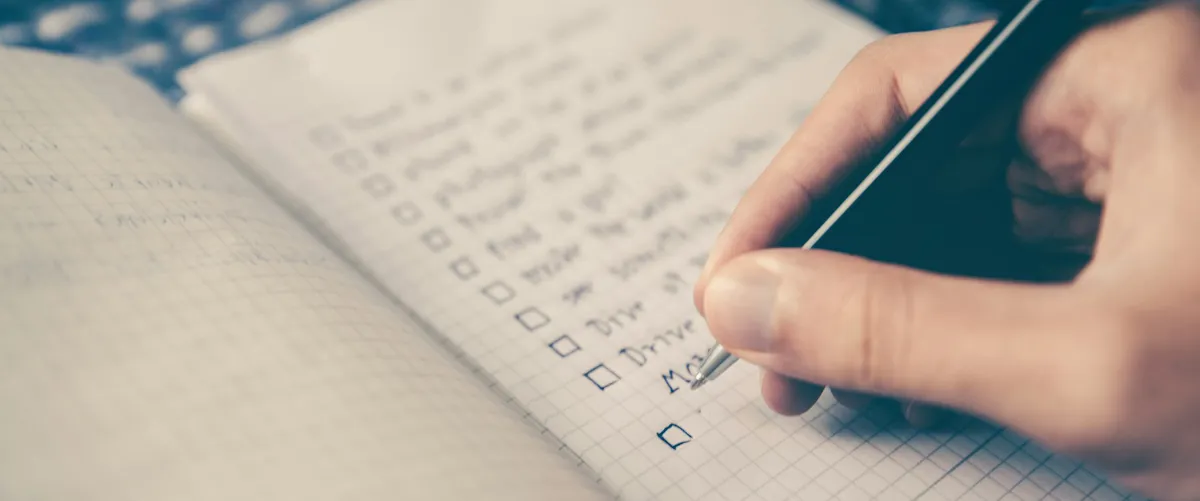
Habits are a Key to Mindfulness
- Eric Kraus
- productivity
- Oct 17, 2016
Introduction
Mindfulness is a relatively new concept that’s getting a lot of buzz lately. Many people are seeking to be more “mindful” and are trying to pay more attention to little things in life: everything from feeling a breath in their lungs to noticing the specific color of the sky each day.
There is no ‘one thing’ that means being mindful; and mindfulness is not a destination to achieve.
There is no right or wrong way to be mindful : there is only practicing it. It’s a skill of slowing down and increasing one’s awareness of self and world.
Why? Because studies show these small moments of mindfulness lead to happier people.
Habits?
Ok, so… what about Habits?
Habits are actions that we do automatically based on a trigger of some type. Sometimes, we don’t even make a conscious decision to do them. And as we all know, they are really hard to create and change.
A habit is an acquired mode of behavior that has become nearly or completely involuntary over time.
It’s important to realize that habits are learned over time and therefore can be unlearned over a similar amount of time. This should alleviate confusion with:
- instincts - innate behaviors in response to something
- addictions - physical and mental dependency on a particular feeling, substance, behavior, etc.
(which have pros and cons)
In some ways, habits are the opposite of mindfulness.
We go about our lives automatically, sometimes unaware of the actions we are taking because we’ve learned to do them with so little effort and thought.
Eliminating Habits?
So, in order to be mindful, we should eliminate habits? No way!
Habits can be great things. They can automate very positive things in our lives (brushing teeth, taking medication, saying “thank you”, etc.). They can free up mental energy or even be the trigger to remind us to be mindful. The keyword here is “ can ”.
Not all habits are created equal. A habit of biting nails while nervous is less productive than a habit of saying “thank you” when someone gives you something.
It’s important to be aware of the habits you have and make continuous improvements as necessary.
Habits + Mindfulness
Tying habits to mindfulness, might be the magic sauce.
Here are three keys to making habits work FOR us (and not against us).
1. Spend your time wisely
Automation of our lives should allow us to achieve more of the desirable things.
A sole proprietor might hire an assistant or implement an automation solution to handle invoicing. Her goal is to free up mental space (time) so she can get back to brainstorming, meeting with clients, or whatever she is passionate about with her business.
Create habits that automate the dirty work so you can use the free time to enjoy your life.
2. Know which things to automate and which to not
Having more habits is not necessarily better.
Today’s mindfulness tips are full of suggestions for eliminating the bad automation we’ve accrued over the years. Being aware of which things are happening automatically is an exercise in self-awareness and puts you in the drivers seat.
In many ways, this is the practice the mindfulness itself.
3. Habits can trigger a reminder to be mindful
A certain action you do regularly or automatically can be the reminder to pause and reflect on something else.
Here’s an example: the next time you automatically say “thank you”, pause and think of several other things you are grateful for. Doing this can encourage a positive mood and perception throughout the day.
Studies show that small, regular activities of mindfulness like this can actually be as beneficial as longer session of meditation.
Practice Makes Permanent
There is no right or wrong way to mindfulness, there is only practice.
And, practice doesn’t make perfect , it actually makes permanent .
Habits can be a great way to help us strengthen that practice, since they are already so wired into our brains.

